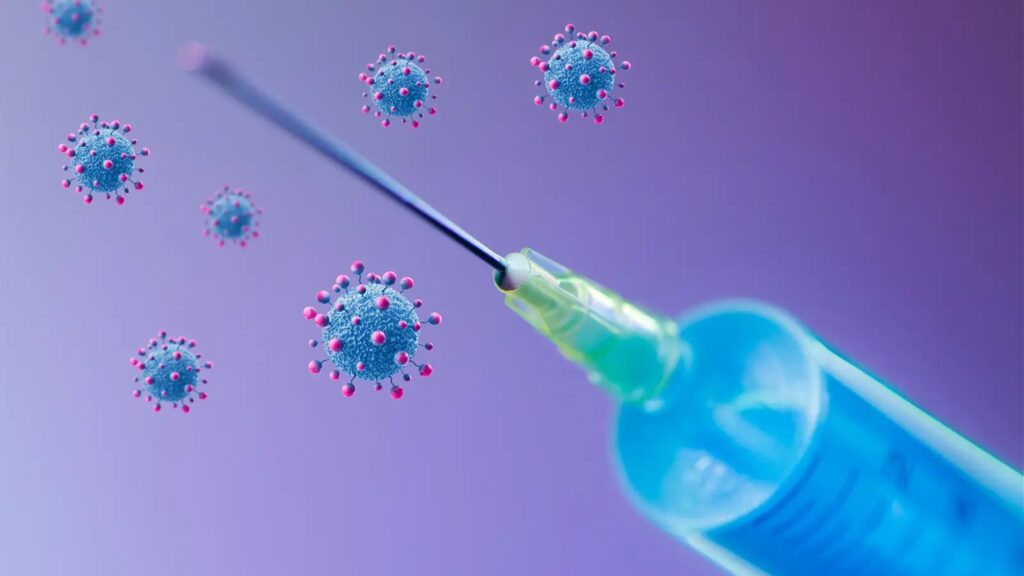COVID-19 breakthroughs seem to be more common than ever. But how common and how harmful are these breakthrough cases? What can be done to prevent them?
The severity of symptoms can be affected by the frequency of vaccinations. The CDC will continue to conduct studies on COVID-19. However, they will continue to update the list. COVID-19 can be very dangerous for those who are older and have related illnesses such as heart disease, lung disease, or diabetes. To reduce the effects of COVID-19, you can use Iversun 12 and Iverotaj 6 online from the USA. Coronaviruses, which can infect people with certain viruses, are the most common.
What is a Breakthrough Covid-19 Case Case?
According to the CDC, a breakthrough case is one in which individual checks positive for COVID-19 two weeks after becoming fully vaccinated. This includes receiving a booster dose or a third dose if you are eligible.
As the CDC also notes, breakthroughs are to be expected. The COVID-19 vaccines deliver immunity in a very efficient manner, but no vaccine is perfect.
One other goal of vaccination is to prevent severe illness. The COVID-19 vaccines can be profitable in this regard.
Dr. Gordon states, “All throughout the pandemic we’ve spoken about flattening it,” The vaccine is able to do that. These extreme cases of COVID-19 spikes are most common among those who have not been vaccinated.
What are the Signs of a Breakthrough Case?
A breakthrough case has symptoms that are similar to those of typical COVID-19 cases. People who have been vaccinated/boosted by COVID-19 instances are less likely to get severe illness than those who are not.
Dr. Gordon explains that many breakthrough cases are either asymptomatic or show signs that might be less severe than those in unvaccinated patients. The vaccine and booster are key here.
How Common Are Breakthrough Instances?
Although the CDC is accumulating information on vaccine breakthrough infections, many instances of breakthrough infections are asymptomatic or mild and are not reported by individuals. The CDC may be undercounting the number of reported instances.
However, the CDC still monitors one important metric relating to breakthrough cases. Dr. Gordon states that they are focusing on breakthrough cases that can lead to death or hospitalization. However, that number is still small.
The CDC has created a database to track these cases. It found that people who are not vaccinated are 10 times more likely to be optimistic about COVID-19, and 20 times more likely to succumb to it.
People who have been vaccinated or boosted may experience breakthrough cases and show signs of the illness. The chances of getting a severe illness are much lower than for those who have not been vaccinated.
Why Do Breakthrough Instances Happen?
Despite the fact that no vaccine is perfect, breakthrough instances have been anticipated. Although breakthrough instances can be found in all COVID-19 variants of the vaccine, however, most seem to be from the delta or omicron versions.
Dr. Gordon states that the delta variant of the COVID-19 virus is more transmissible than the earlier COVID-19 variants and that the omicron variant seems to be as well. “At this stage, however, cases from these variants have not been confirmed to cause more severe illness than other variants.
The fact that vaccines are effective in preventing severe illness is a good sign. Dr. Gordon reiterates that “vaccinated” means getting your third dose of vaccine or booster. This is to ensure you are protected against any breakthroughs from variants of concern.
Omicron version
The omicron variant was first discovered in the USA in December 2021. Since then, it has spread rapidly and led to an increase in breakthrough cases. According to the CDC, anyone with an omicron virus infection can spread it to others, even if they are vaccinated.
Research continues to examine how easily omicron spreads and what therapies work against it.
Delta variant
According to the CDC, the delta variant of the COVID-19 virus, which accounted in part for more than 83% of all U.S. cases in July 2021 was more transmissible than the earlier COVID-19 variants. Dr. Gordon says that the delta variant is twice as contagious as earlier variants.
What to do if you get a breakthrough covid-19 case
If you or someone in the house becomes sick from a COVID-19 breakthrough case, it is best to get as much isolation as possible. This is especially true if anyone in your home is not vaccinated. If isolation is not possible, try to keep the air moving as much as possible and wear masks indoors.
According to the CDC, self-isolating sufferers are allowed to continue their isolation for up to 10 days following the onset signs. If you have a fever, it is okay to stop isolation 24 hours later.
Dr. Gordon states that breakthrough cases for people who have been vaccinated are rare and usually comparatively mild. This is why it’s important that everyone eligible be vaccinated.
The Significance of Getting Vaccinated With The Booster
It is vital to be vaccinated against COVID-19 due to the highly transmissible natures of the omicron and delta variants. Dr. Gordon states that the vaccines available in the USA are effective against COVID-19, and the two-shot, mRNA vaccines are particularly effective in opposition to all the variants of concern.
This means that you should get the two-shot mRNA vaccinations (Pfizer & Moderna), and then your booster or third dose as soon as possible.
Dr. Gordon explains that the term “totally vaccinated” refers to being boosted within the omicron time. “Even with the variants of concern, a key instrument we now have to prevent an infection is being vaccinated.”


